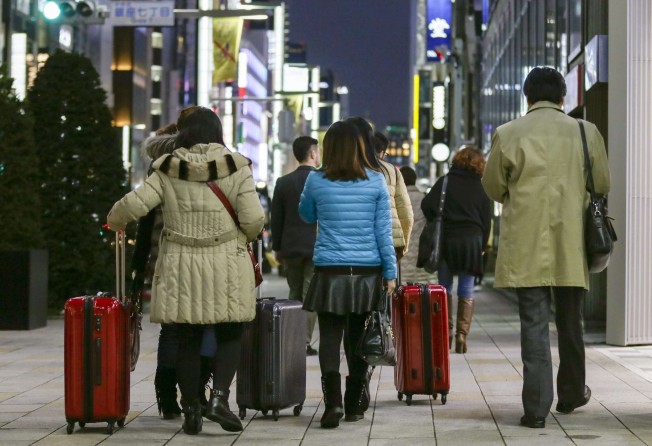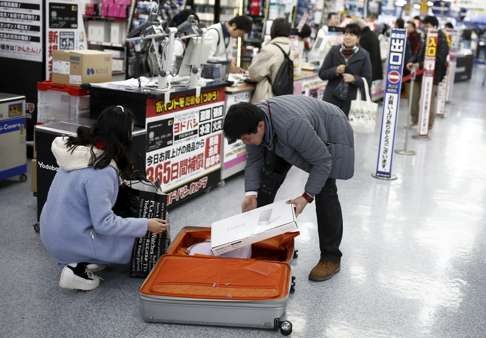HK retailers could benefit, as rising yen and won scare off mainland shoppers: Credit Suisse
But new study also warns more-cautious Chinese are spending less everywhere

Hong Kong’s battered retail sector could benefit from a rise in the strength of the Japanese yen and the South Korean won, according to a report from Credit Suisse.
But the less shoppers going to both countries, is not expected to make up for the loss in revenue from mainland shoppers coming to the city, the study adds.
Hong Kong retail sales in June slid 8.9 per cent from a year earlier to HK$33.7 billion ($4.34 billion) in value terms, slower than a revised 8.3 per cent slump in May. In volume terms, June sales dropped 9.6 per cent, government data showed last week.
That was the 16th consecutive monthly contraction, but the rate of decline slowed compared with the first quarter of the year.
Mainland tourists have been avoiding Hong Kong, lured increasingly to other Asian destinations such as Japan and South Korea as they offered cheaper travel options.
But Christiaan Tuntono, an economist at Credit Suisse, said as those currencies strengthen, more mainland tourists could be gradually coming back to Hong Kong.
Mainland visitors to Hong Kong, who account for nearly three-quarters of the city’s total visitor arrivals, fell by 3.8 per cent to 3.21 million in June, although that was a narrowing from a 15.1 per cent decline in the first quarter, according to the latest figures.
“The discounts Chinese shoppers were getting from buying in Japan have narrowed compared with Hong Kong, and that may be helping lure back some Chinese tourists,” Tuntono told South China Morning Post.
A sharp depreciation in the Japanese yen against the Chinese yuan since mid-2014 led to an influx of Chinese shoppers to the neighbouring country, where popular luxury goods were far cheaper than in Hong Kong. Last year, the number of Chinese tourists to Japan reached 4.99 million, almost double the previous year.

One yuan now fetches about 15 yen, compared with 19 yen at the start of 2016.
Although the number of Chinese tourists to Japan was up 26 per cent year-on-year in June, spending per person fell 23 per cent in the second quarter to 219,996 yen, according to the Japan Tourism Agency.
Travelling and shopping to South Korea, meanwhile, is also getting more expensive with the Korean won rising 5.5 per cent against the US dollar this year.
Currency movements often affect where Chinese tourists spend their holidays.
Travel agencies in the mainland have seen a growing interest in visiting the United Kingdom, for instance, after Brexit which has caused the pound to plummet in value.
But analysts say the appeal of travelling to Europe could have dampened, after a string of terrorist-related attacks in France and Germany.
Despite the slightly improving tourist sentiment towards Hong Kong, other analysts still warn that mainland buyers no longer have the same purchasing power as before.
“Given the uncertain global environment, now made worse by Britain’s decision to leave the European Union, Chinese consumers may not actually be willing to spend as heavily,” HSBC economist Jing Li said in a note.
Joe Lin, chief executive at property giant CRBE in Hong Kong, also said retail sales are unlikely to rebound, even if a stronger yen drives tourists back to the city.
“The number of luxury shoppers in China is falling because of the anti-corruption policy and the slowing economic growth,” Lin said.
“Average spending is going down compared with previous years. They are buying more mass products instead of luxuries.”